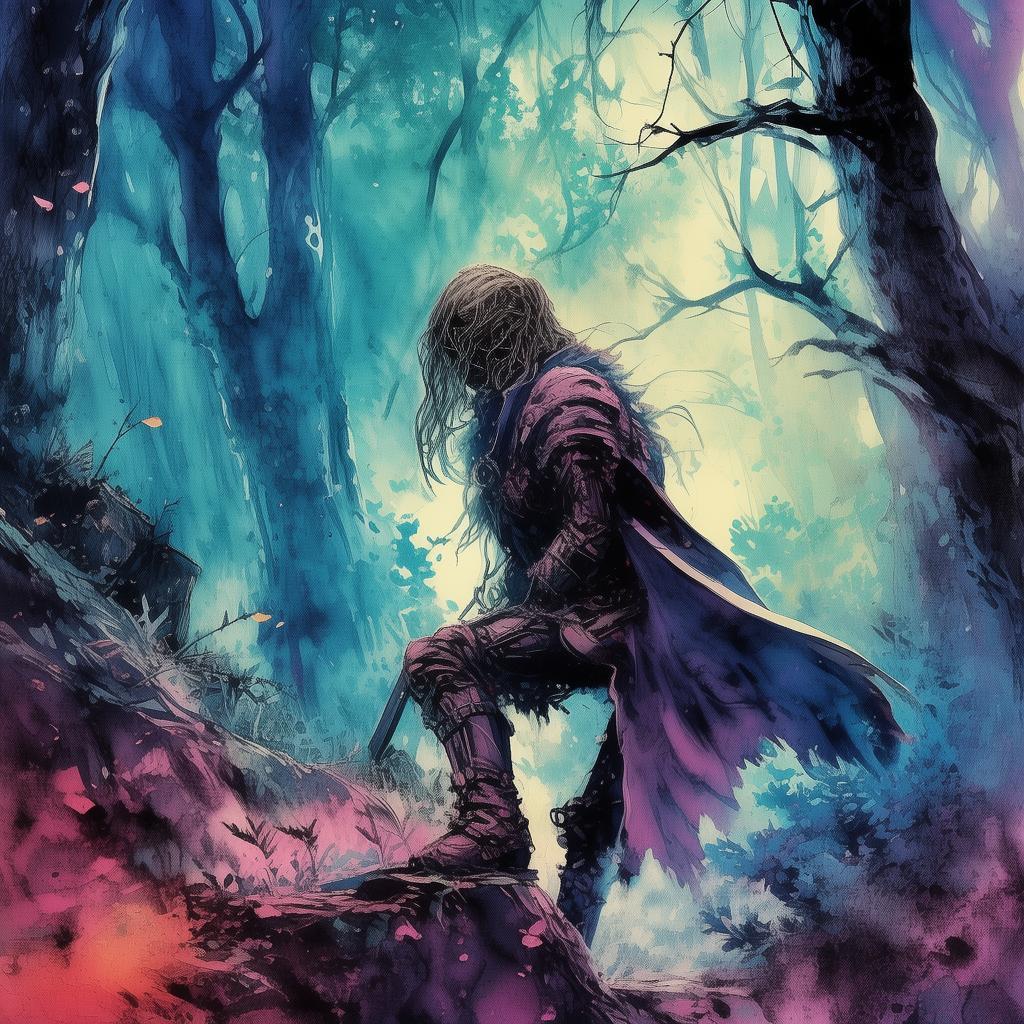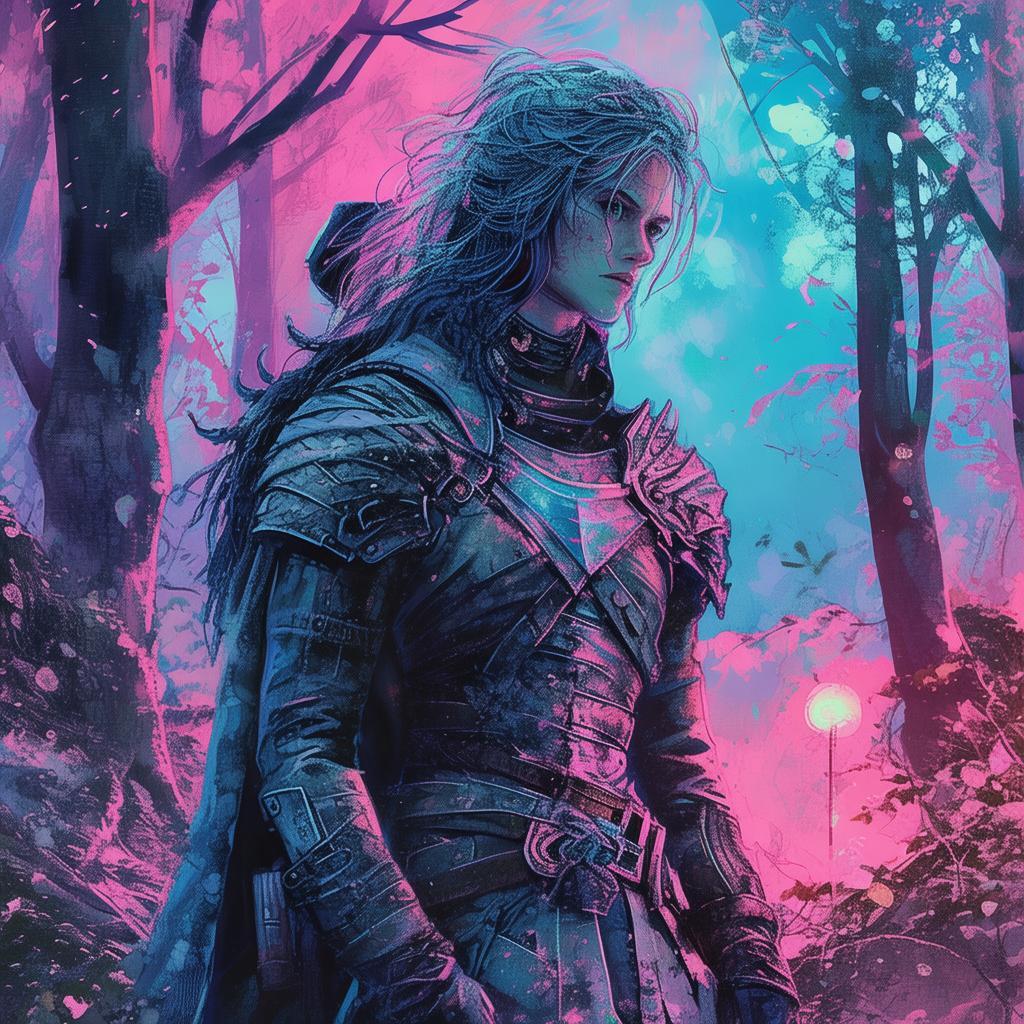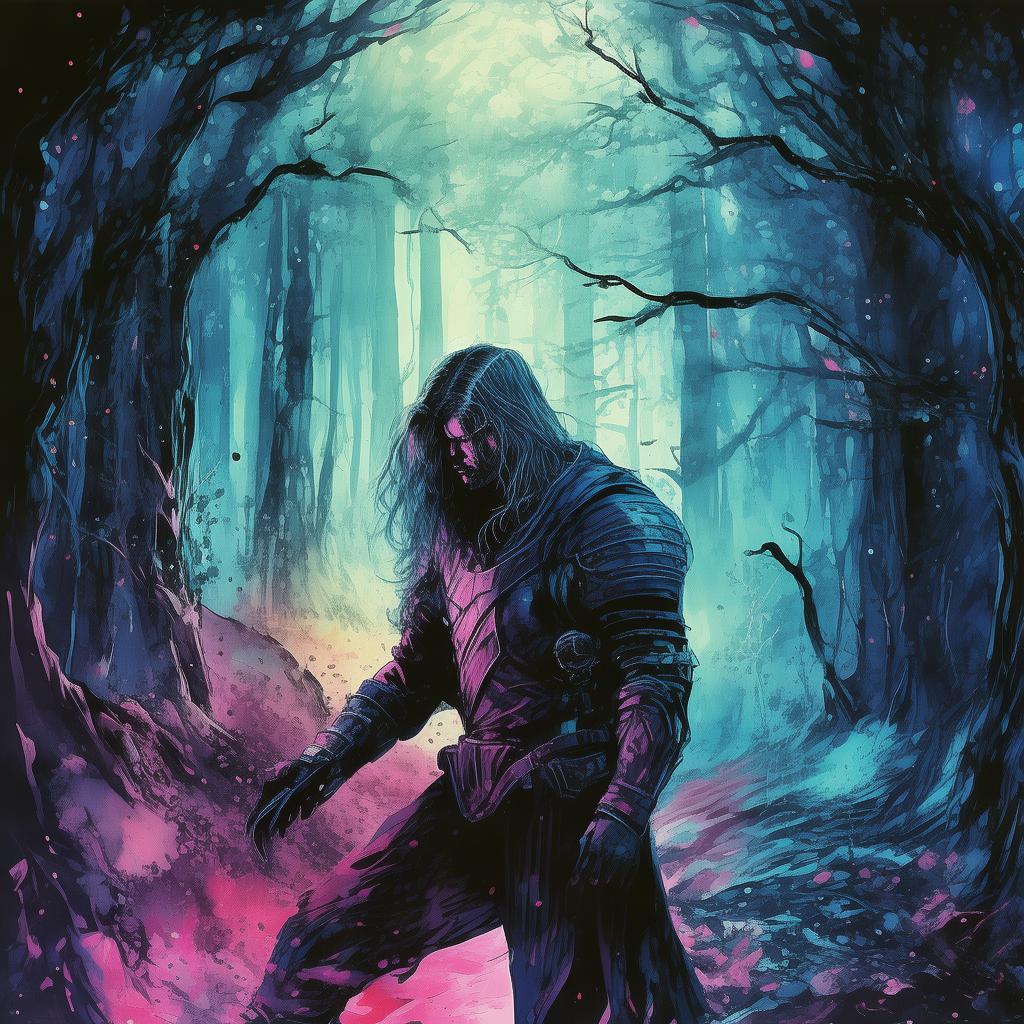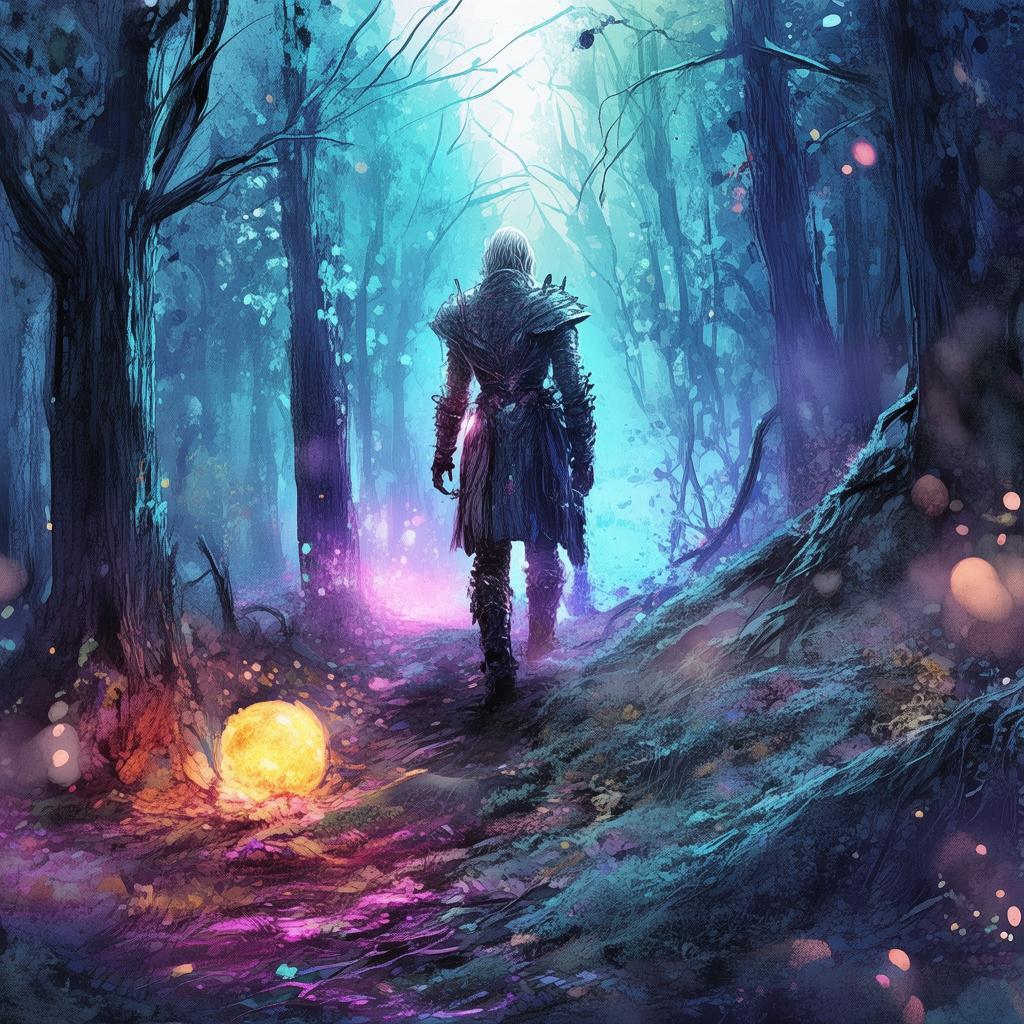The Lament of the Nomadic Strings
In the heart of a vast, untamed desert, where the sun baked the sands and the winds howled like the voices of the ancestors, there lived a man named Aria. Aria was a wanderer, his life a tapestry of solitude and the open road. His only companion was a horsehair harp, its strings as brown as the earth, its sound as haunting as the desert itself.
The harp was no ordinary instrument. It was said that the strings were made from the hair of a mythical horse that roamed the sands, a creature that could communicate with the spirits of the earth. The harp was an artifact of old, passed down through generations of nomadic minstrels, each one a keeper of stories and songs that told the tales of the desert’s past.
Aria’s journey was one of discovery. He traveled from oasis to oasis, his harp his guide and his only friend. But the desert was not kind, and one fateful day, Aria found himself in the ruins of an ancient city, the remains of a once-thriving culture now reduced to sand and silence.
Tired and weary, Aria sat by a crumbling pillar and pulled his harp from its case. He played a gentle tune, a lullaby for the dead, and as he played, he felt a strange sensation. The harp seemed to resonate with the ancient city, as if it too was a relic of a time long past.
It was then that the harp spoke to him, a voice like the whispering of the wind. “Aria, you have been chosen,” it said. “The desert calls you to play a song of remembrance, a song that will bring life back to these ruins.”
Aria was taken aback, but the voice of the harp was compelling. He agreed to the harp’s request and began to compose a melody, his fingers dancing across the strings, weaving a tapestry of sound. The melody was a mix of sorrow and hope, a lament for the lost and a promise of new beginnings.

As Aria played, the ruins seemed to come to life. The wind shifted, the sand moved, and the desert responded with a cacophony of sounds. The spirits of the desert, bound to the land by centuries of neglect, began to stir. They danced and sang, their voices blending with the music of the harp, and the desert bloomed with life.
Word of Aria’s miracle spread far and wide. The nomadic tribes came together, their songs blending into a symphony that echoed across the desert. Aria’s harp became a symbol of hope and unity, a beacon of light in a world that had forgotten its ancient magic.
But the legend of the horsehair harp was not without its challenges. For as Aria continued to play, the strings began to fray, a sign that the magic of the harp was waning. The desert, once again, seemed to lose its luster, and the spirits grew weary.
Aria knew that he had to find a way to preserve the magic of the harp. He traveled to the farthest reaches of the desert, seeking the mythical horse that had once given the harp its life-giving strings. After many days of searching, he found the horse in a hidden valley, its coat a patchwork of colors, its eyes wise and old.
The horse spoke to Aria, and he learned that the horsehair could only be replaced by the hair of the very same creature. Aria agreed to a perilous quest, to prove his worth and to save the harp. He set out on a journey that took him through treacherous canyons and over mountains, facing challenges at every turn.
In the end, Aria returned to the ruins with the hair of the mythical horse. He replaced the strings of the harp, and as he played, the desert once again came to life. The legend of the horsehair harp was preserved, and Aria’s name was etched into the sands of time.
From that day forward, the horsehair harp was known as the Lament of the Nomadic Strings, a symbol of the enduring power of music and the spirit of the desert. Aria’s story was told for generations, a tale of courage, hope, and the magic that can be found in the simplest of things.
✨ Original Statement ✨
All articles published on this website (including but not limited to text, images, videos, and other content) are original or authorized for reposting and are protected by relevant laws. Without the explicit written permission of this website, no individual or organization may copy, modify, repost, or use the content for commercial purposes.
If you need to quote or cooperate, please contact this site for authorization. We reserve the right to pursue legal responsibility for any unauthorized use.
Hereby declared.









